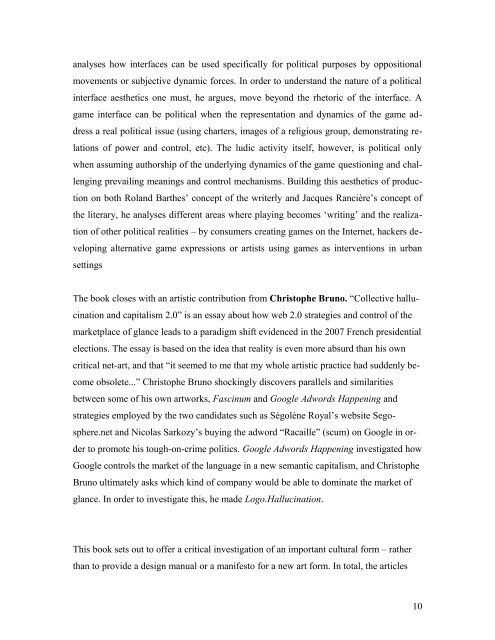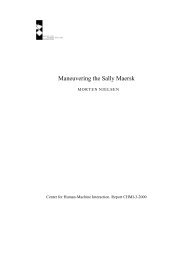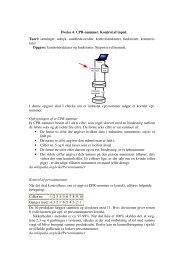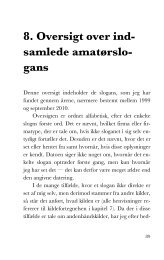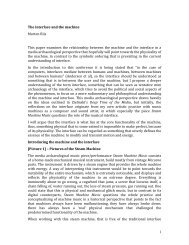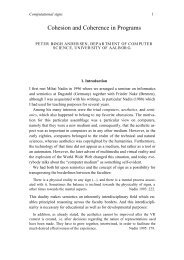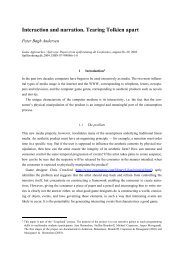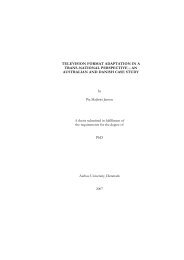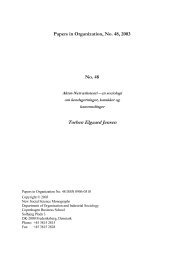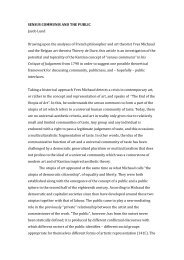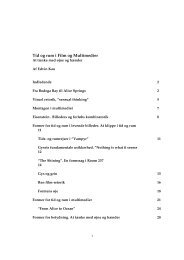introductory chapter - Digital Aesthetics Research Center
introductory chapter - Digital Aesthetics Research Center
introductory chapter - Digital Aesthetics Research Center
You also want an ePaper? Increase the reach of your titles
YUMPU automatically turns print PDFs into web optimized ePapers that Google loves.
analyses how interfaces can be used specifically for political purposes by oppositionalmovements or subjective dynamic forces. In order to understand the nature of a politicalinterface aesthetics one must, he argues, move beyond the rhetoric of the interface. Agame interface can be political when the representation and dynamics of the game addressa real political issue (using charters, images of a religious group, demonstrating relationsof power and control, etc). The ludic activity itself, however, is political onlywhen assuming authorship of the underlying dynamics of the game questioning and challengingprevailing meanings and control mechanisms. Building this aesthetics of productionon both Roland Barthes’ concept of the writerly and Jacques Rancière’s concept ofthe literary, he analyses different areas where playing becomes ‘writing’ and the realizationof other political realities – by consumers creating games on the Internet, hackers developingalternative game expressions or artists using games as interventions in urbansettingsThe book closes with an artistic contribution from Christophe Bruno. “Collective hallucinationand capitalism 2.0” is an essay about how web 2.0 strategies and control of themarketplace of glance leads to a paradigm shift evidenced in the 2007 French presidentialelections. The essay is based on the idea that reality is even more absurd than his owncritical net-art, and that “it seemed to me that my whole artistic practice had suddenly becomeobsolete...” Christophe Bruno shockingly discovers parallels and similaritiesbetween some of his own artworks, Fascinum and Google Adwords Happening andstrategies employed by the two candidates such as Ségolène Royal’s website Segosphere.netand Nicolas Sarkozy’s buying the adword “Racaille” (scum) on Google in orderto promote his tough-on-crime politics. Google Adwords Happening investigated howGoogle controls the market of the language in a new semantic capitalism, and ChristopheBruno ultimately asks which kind of company would be able to dominate the market ofglance. In order to investigate this, he made Logo.Hallucination.This book sets out to offer a critical investigation of an important cultural form – ratherthan to provide a design manual or a manifesto for a new art form. In total, the articles10


